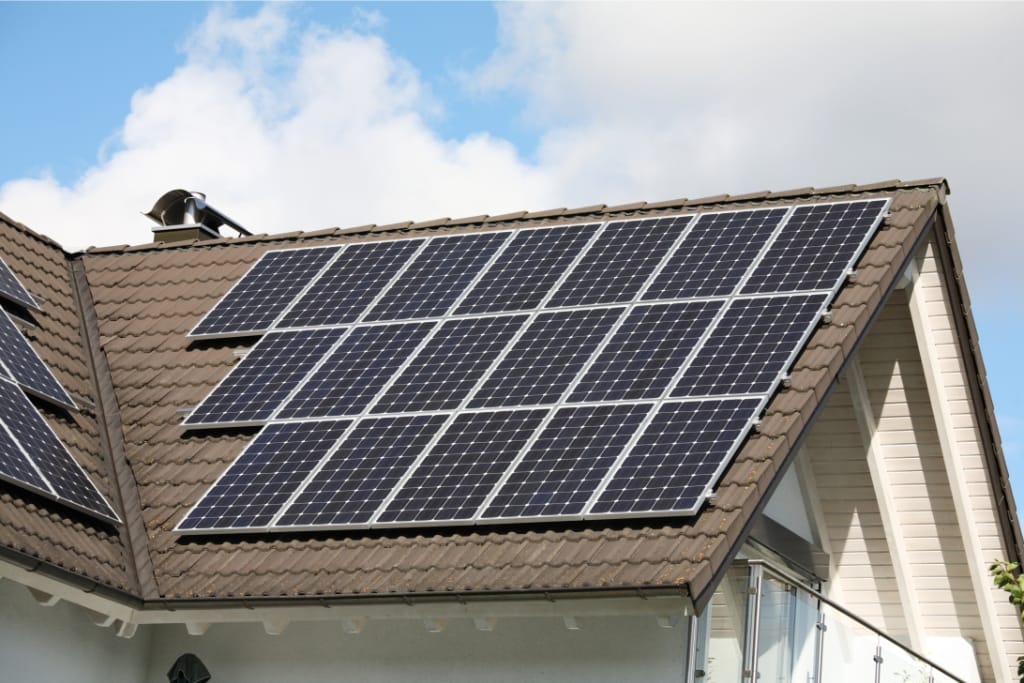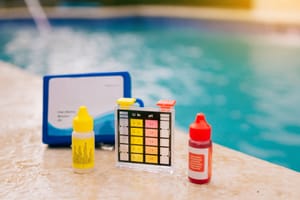Solar energy is a clean, renewable, and abundant source of power. Embarking on the journey of installing solar panels in your home can be a significant step toward energy independence.
Buying solar panels, however, can often feel like a daunting task. This article aims to simplify that process, providing you with 10 practical tips to make an informed and wise decision.
We'll walk you through factors such as understanding your energy needs, evaluating the efficiency of different panels, choosing a reliable provider, and more.
Let's shed some light on the process of purchasing solar panels.
1)) Determine Your Energy Needs
Before purchasing solar panels, you need to determine your energy needs.
You need to know how much energy your home consumes each day. This will help you determine the number of solar panels you need to install.
You can use an energy calculator online to determine your daily energy needs.
Tips for Determining Your Energy Needs:
- Analyze Your Electricity Bills: Review your past electricity bills to understand your average monthly energy consumption. This information is usually mentioned in kilowatt-hours (kWh), and it gives you a clear idea of your energy usage patterns.
- Use Energy Consumption Calculator: Today, there are numerous online energy calculators that can help you estimate your daily, monthly, or yearly energy consumption based on the electrical appliances you use at home.
- Consult an Energy Auditor: Consider hiring a professional energy auditor. They can conduct a detailed assessment of your home's energy use and give you a more accurate estimate. This can be extremely helpful in sizing your solar system correctly.
Understanding your energy needs is a fundamental first step in your journey toward solar power adoption.
By delving into your electricity bills, leveraging online calculators, and possibly consulting with an energy auditor, you can gain a clear and comprehensive picture of your energy consumption.
This information is critical as it directly influences the size and hence, the cost of your solar power system.
Making an informed decision ensures that your solar power system will be optimally efficient, meeting your energy needs while being cost-effective.
2)) Choose A Reputable Solar Panel Manufacturer
When buying solar panels, it's important to choose a reputable manufacturer. Make sure you do your research before making your purchase. Look for reviews from other customers and ask for recommendations from friends and family.
Tips for Choosing a Reputable Solar Panel Manufacturer:
- Check Manufacturer's Credentials: Look for manufacturers who have been in the business for a while and hold relevant certifications. This indicates they adhere to industry standards and quality norms.
- Read Customer Reviews: Go through online reviews from previous customers to gauge the quality and reliability of the manufacturer's solar panels.
- Ask for Recommendations: Seek advice from friends, family, or neighbors who already have solar panels installed. Personal experiences often provide insightful information that might not be readily available elsewhere.
Choosing a reputable solar panel manufacturer is a crucial step in your switch to solar energy.
By verifying the manufacturer's credentials, scrutinizing customer reviews, and seeking recommendations, you can assure the quality and longevity of your solar panels.
A reliable manufacturer not only provides a superior product but also offers excellent after-sales service and support, enhancing your overall solar experience.
3)) Quality Matters
The quality of the solar panels you choose matters. High-quality solar panels will last longer and produce more energy. When buying solar panels, don't compromise on quality for price.
Tips for Ensuring Quality in Solar Panels:
- Efficiency Ratings: Check the efficiency ratings of the solar panels. Higher efficiency means more electricity generation per square footage, leading to higher energy production.
- Materials and Craftsmanship: The quality of materials used and craftsmanship involved in the making of solar panels can greatly influence their longevity and performance. Look for panels made with high-quality materials and superior manufacturing processes.
- Manufacturer's Warranty: A long-term warranty is a good indicator of the manufacturer's confidence in their product's quality and durability. A warranty of 25 years is standard for high-quality solar panels.
When it comes to solar panels, quality is paramount. Ensuring high-efficiency ratings, excellent materials, and craftsmanship, along with a solid manufacturer's warranty, can significantly enhance the performance and lifespan of your solar system.
While high-quality panels might come with a larger initial investment, they lead to greater energy production and savings over time, making it a wise and sustainable choice in the long run.
Always remember, when it comes to solar panels, it's not about the cheapest, but the best value for your money.
4)) Check For Certifications
When buying solar panels, make sure they are certified. Panels that have been certified by the relevant authorities meet certain standards and are more reliable.
Look for certifications such as UL, IEC, and TUV.
Tips for Checking Certifications in Solar Panels:
- Understand Certification Standards: Familiarize yourself with different certification standards like UL (Underwriters Laboratories), IEC (International Electrotechnical Commission), and TUV (Technical Inspection Association). These certifications ensure that the panels have been tested and meet specific safety and performance standards.
- Verify Authenticity: Ensure that the certifications claimed by the manufacturer are authentic. You can usually do this by visiting the certifying body's website or contacting them directly.
- Look for Additional Certifications: While UL, IEC, and TUV are common, additional certifications like ISO (International Standards Organization) or MCS (Microgeneration Certification Scheme) can provide further assurance of quality and reliability.
Ensuring that your chosen solar panels carry the right certifications is a vital part of the buying process.
Understanding the meaning of these certifications, verifying their authenticity, and looking out for additional accreditations will help you wade through the market's many options.
Certifications like UL, IEC, TUV, ISO, and MCS are not just labels; they are your assurance that the panels meet established safety and performance standards.
A certified product is a testament to its quality, reliability, and compliance with industry standards, giving you peace of mind with your investment in solar energy.
5)) Decide On The Type Of Solar Panel You Want
There are different types of solar panels available in the market. The most common types are monocrystalline, polycrystalline, and thin-film.
Each type has its own benefits and drawbacks. Choose the type that best suits your needs.
Tips for Deciding the Type of Solar Panel:
- Evaluate Your Energy Needs: Understanding your daily energy consumption can help determine the type of solar panel that would be most efficient for you. Monocrystalline panels are highly efficient but more expensive, while polycrystalline and thin-film panels are less efficient but more affordable.
- Consider Your Space: The type of panel you choose also depends on the amount of space you have available. Monocrystalline and polycrystalline panels require less space than thin-film panels due to their higher efficiency.
- Research the Pros and Cons: Each type of solar panel has its pros and cons. For example, while monocrystalline panels are more efficient, they also cost more. On the other hand, thin-film panels are less efficient but are easy to manufacture and hence cheaper. Understanding these can help you make an informed decision.
Choosing the right type of solar panel is a crucial step in your transition to solar energy.
Your energy needs, available space, and understanding of the pros and cons of each type of panel are key factors in this decision.
Whether it's the highly efficient monocrystalline panels, the cost-effective polycrystalline, or the easily manufactured thin-film panels, ensure your choice aligns with your unique requirements and circumstances.
The goal is not just energy generation, but efficient and cost-effective energy generation that suits your needs and environment.
6)) Decide On The Type Of Solar Panel You Want
The size of the solar panel you buy will depend on the amount of space you have available for installation.
Make sure you measure the available space before making your purchase.
Tips for Choosing the Size of Your Solar Panel:
- Measure Your Space: Before even starting to shop for solar panels, take the time to accurately measure the space where you intend to install them. This will help you avoid buying panels that are too big or too small for your space.
- Calculate Your Energy Needs: The size of the solar panel you need also depends on your energy consumption. More energy use will require a larger panel to generate sufficient power.
- Consult a Professional: If you're unsure about the size of the panel you need, don't hesitate to consult with a solar energy professional. They can provide you with accurate information and recommendations based on the specifics of your property and energy use.
Selecting the size of your solar panel involves careful consideration of your space and energy requirements.
Accurate measurements and a correct understanding of your energy consumption can guide you toward making an optimal choice. When in doubt, professional advice can be invaluable.
The goal of solar energy is not only to generate power but to do so efficiently and effectively within your unique context.
Choosing the right size of the solar panel is a critical step towards achieving this goal.
7)) Compare Warranties
When buying solar panels, make sure you compare warranties. The warranties on solar panels vary, and it's important to choose one that offers long-term protection.
Tips for Comparing Solar Panel Warranties:
- Understand the Types of Warranties: Solar panels often come with two types of warranties - Performance and Equipment. A performance warranty guarantees that the panels will operate at a certain percentage of their rated efficiency for a specific period. An equipment warranty covers any defects or issues with the panel itself.
- Consider the Length of the Warranty: The longer the warranty, the better the protection. Look for a warranty that covers your panels for at least 25 years, as solar panels are designed to last for decades.
- Check the Warranty Provider: Make sure the warranty is backed by a company that's likely to still be around in 25 years. A warranty isn't much help if the company isn't there to honor it. So, do some research on the manufacturer's history and financial stability.
Comparing warranties is a vital step when purchasing solar panels.
By understanding the types of warranties, considering the length of coverage, and checking the reliability of the warranty provider, you can ensure long-term protection for your investment.
A warranty is your insurance against unforeseen issues with your solar panels.
Make sure you choose a comprehensive warranty from a reputable provider so that your transition to renewable energy is secure and stress-free.
8)) Consider The Price
The price of solar panels varies depending on the brand, quality, and type. When buying solar panels, make sure you compare prices from different manufacturers.
However, don't compromise on quality for price.
Tips for Considering the Price of Solar Panels:
- Compare Different Brands: Prices can vary significantly between different manufacturers. Make sure you obtain quotes from multiple companies to ensure you are getting the best deal.
- Evaluate Price vs Quality: While it might be tempting to opt for the cheapest panels, it's essential to consider the quality and efficiency of the panels as well. Cheaper panels might not last as long or perform as efficiently, leading to higher costs in the long run.
- Consider Financing Options: Many companies offer financing options that can make investing in solar panels more affordable. Ensure to compare the terms and interest rates of these options to gauge if they are a financially viable solution.
Considering the price is a significant aspect when investing in solar panels.
By comparing different brands and evaluating the balance between price and quality, you can avoid overpaying without compromising the efficiency and longevity of your panels.
Additionally, exploring available financing options can make this green investment more accessible.
Keep in mind, investing in solar panels is not just about the initial cost, but also about the savings and benefits over the long term.
9)) Look For Incentives
There are several incentives available for those who install solar panels. Check for incentives such as tax credits, rebates, and grants.
These incentives can help reduce the overall cost of your solar panel installation.
Tips for Looking for Solar Panel Incentives:
- Research Government Programs: In many regions, governments offer incentives like tax credits, rebates, and grants for solar panel installations. Make sure to research your local and national government programs to find available opportunities.
- Check with Your Utility Company: Some utility companies provide incentives for customers who install solar panels. It's worth checking with your provider to see what they might offer.
- Consult a Solar Energy Professional: Solar energy professionals are usually up-to-date on the latest incentives available. By consulting them, you might discover incentives that you wouldn't have known about otherwise.
Looking for incentives is a crucial factor in reducing the overall cost of your solar panel investment.
By researching government programs, checking with your utility company, and consulting with solar energy professionals, you can access a range of incentives that may ease your financial burden.
The goal of these incentives is to promote the adoption of renewable energy, and taking advantage of them can make your transition to solar power both economically and environmentally beneficial.
10)) Choose An Experienced Installer
When installing solar panels, it's important to choose an experienced installer.
Make sure the installer is licensed and insured. Ask for references and check their past work.
Tips for Choosing an Experienced Solar Panel Installer:
- Verify Credentials: Confirm that the installer is licensed, insured, and certified by reputable organizations, such as the North American Board of Certified Energy Practitioners (NABCEP). These credentials ensure that the installer has the necessary training and expertise.
- Ask for References: Request references from previous clients. This will allow you to verify their satisfaction and get an idea of the installer's quality of work and professionalism.
- Review Past Projects: Ask to see the installer's portfolio of past installations. This not only provides proof of experience but also gives you an opportunity to assess the quality and aesthetics of their work.
Choosing an experienced installer is critical to ensure the proper setup and performance of your solar panels.
By verifying the installer's credentials, asking for references, and reviewing past projects, you can rest assured that your solar panel investment is in capable and skilled hands.
An experienced installer will not only provide you with quality service but also offer valuable insights and advice tailored to your specific needs and circumstances.
Conclusion
Investing in solar panels is a substantial decision that holds both financial and environmental implications.
From considering the price to seeking incentives and choosing an experienced installer, each step significantly impacts the long-term benefits of your investment.
Therefore, it's vital to make each decision thoughtfully, based on ample research and considerations.
With the right approach and choices, your investment in solar panels can turn out to be rewarding—offering you financial savings, energy independence, and the satisfaction of reducing your carbon footprint.
Related Articles and Guides
- How To Buy Solar Panels
- How To Calculate The Energy A Solar Panel Saves
- 10 FAQs About How To Buy Solar Panels
- Solar Panels Buying Guide
Are You Looking For The Best Solar Power Installers In Sacramento Ca? Click Here To Get In Touch With A Solar Expert Today!
Download Our Free E-book!








